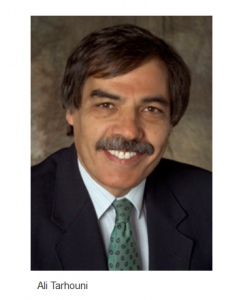UW Faculty Member, Resigns As Finance Minister for Libya, Calls New Leaders Unrepresentative Elite
Ali Tarhouni is returning to Seattle for a brief visit before going back to his homeland to build a new political party.
Dr. Tarhouni left Libya as a student in 1973, fingered by the Gaddafi regime for his pro-democracy activism and later stripped of his citizenship. At the UW he rose to become as senior lecturer in finance and business economics. Now he has become an outspoken leader for representative deomocracy in the new State.
After 40 years in the US, Ali Tarhouni left the UW in late February, to answer the call for  help.
help.
“I am not sure who is alive and who is dead, but I feel that I need to go back to help as much as I can,” Tarhouni wrote in a farewell email to friends, students and colleagues at the UW Foster School of Business just before returning to Libya.
Tarhouni served as the minister for oil and finance on the National Transitional Council, the provisional governing authority in Libya, from 23 March 2011 to 22 November 2011.[1][2][3] He acted in the capacity of interim Prime Minister of Libya during the departure of outgoing incumbent Mahmoud Jibril from 23 October 2011 until Abdurrahim El-Keib was formally named to succeed Jibril on 31 October.
Dr. Tarhouni is not in the new cabinet. and is critical of the self appointed members of the transitional government. The Huff Post reporta that Tarhouni is concerned that countries that backed the rebellion, especially Qatar, have interests in Libya, “some which we know and some which we don’t know.” Qatar is seen as being a major part f Obama’s “lead formj begind” strategy and was the major contributor to the NATO led air raids. HP quotes Tarhouni, “Some are thinking of imposing their will on the Libyan people and that’s a mistake. For me the question of sovereignty is the most important. This revolution was for re-establishing dignity and sovereignty.”
